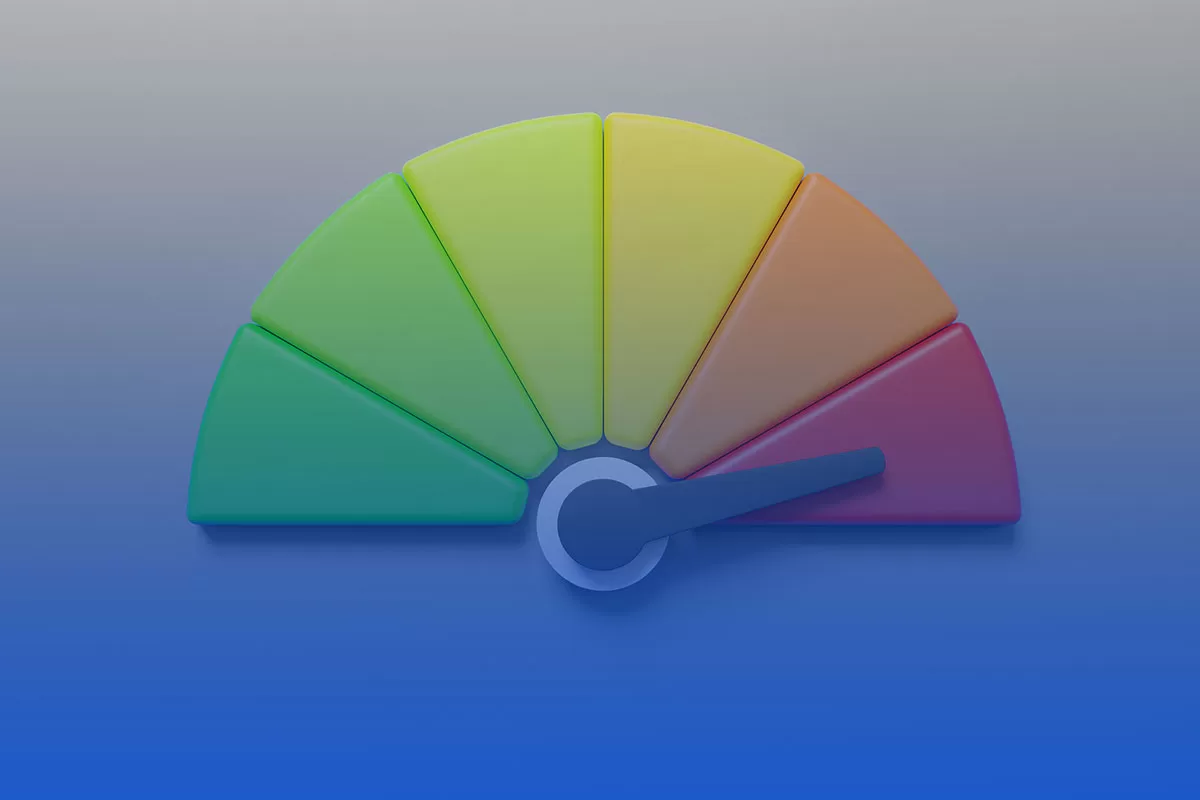Greetings, financial explorers! Today, we’re diving into the intricate world of “Credit Scores,” the numerical key that can unlock a multitude of financial opportunities. Think of your credit score as a financial passport, influencing your ability to secure loans, credit cards, and favorable interest rates. Let’s unravel the mysteries of credit scores and explore why they play a pivotal role in your financial journey.
Table of Contents
Credit Score: The Numerical Mirror of Your Creditworthiness
Imagine your credit score as a mirror reflecting your financial reliability and responsibility. It’s like a numerical snapshot that lenders use to assess the risk of extending credit to you. Understanding your credit score is crucial, as it can impact your financial flexibility and access to various financial products.
Cracking the Code: What is a Credit Score?
A credit score is a numerical representation of your creditworthiness, calculated based on your credit history and other financial behaviors. The score is designed to predict the likelihood that you will repay borrowed money responsibly. In the United States, the most widely used credit scoring models are FICO® Scores, developed by the Fair Isaac Corporation, and VantageScore®.
Key Components of Credit Scores:
- Payment History (35%):
- Your payment history is the most significant factor in determining your credit score, comprising 35% of the total. It reflects your track record of making on-time payments on credit accounts, loans, and other financial obligations.
- Late payments, defaults, and accounts sent to collections can significantly lower your credit score, whereas consistently paying on time can boost it.
- The frequency and recency of late payments are also taken into account, with more recent late payments having a greater negative impact on your score.
- Credit Utilization (30%):
- Credit utilization refers to the ratio of your outstanding credit balances to your credit limits. Keeping this ratio low is essential for maintaining a healthy credit score.
- High credit utilization suggests that you are using a significant portion of your available credit, which can indicate financial strain and may be perceived as a higher risk by lenders.
- It’s generally recommended to keep your credit utilization below 30% to maintain a good credit score, although lower utilization rates are even better.
- Length of Credit History (15%):
- The length of your credit history accounts for 15% of your credit score. It reflects the average age of your credit accounts.
- A longer credit history is generally seen as more favorable because it provides a more extensive track record of your borrowing and repayment behavior, allowing lenders to assess your creditworthiness more accurately.
- Closing old accounts can shorten your credit history and potentially lower your credit score, so it’s often advisable to keep older accounts open even if you’re not actively using them.
- Types of Credit in Use (10%):
- This component considers the variety of credit accounts you have, including credit cards, installment loans, mortgages, and other types of credit.
- Having a diverse mix of credit accounts can demonstrate your ability to manage different types of credit responsibly, which may positively impact your credit score.
- However, it’s essential to note that you shouldn’t open new credit accounts solely to improve this aspect of your credit score, as it only accounts for a relatively small portion of the overall score.
- New Credit (10%):
- New credit accounts for 10% of your credit score and evaluates the number of recently opened credit accounts and recent inquiries into your credit report.
- Opening multiple new credit accounts within a short period can be perceived as risky behavior, as it may indicate financial instability or an urgent need for credit.
- Similarly, numerous inquiries into your credit report within a short timeframe, particularly for new credit applications, can suggest that you’re actively seeking additional credit, which could be a red flag to lenders.
- However, it’s important to note that checking your own credit report (a soft inquiry) typically does not affect your credit score, whereas hard inquiries initiated by lenders when you apply for credit can have a temporary negative impact.
- As with other components of your credit score, the impact of new credit inquiries diminishes over time.

Understanding Credit Score Ranges:
300-579: Poor
Individuals in this credit score range may encounter significant challenges in obtaining credit.
If approved for credit, they are likely to face higher interest rates and less favorable terms due to the perceived higher risk associated with their credit history.
It’s crucial for individuals in this range to work on improving their credit by establishing a positive payment history and reducing outstanding debts.
580-669: Fair
Credit may be accessible to individuals in this range, but they may still face higher than average interest rates and less favorable terms.
While they may qualify for certain types of credit, such as secured credit cards or loans, they may not have access to the most competitive rates and terms available to individuals with higher credit scores.
It’s important for individuals in this range to continue working on improving their credit by making on-time payments and managing their credit responsibly.
670-739: Good
This credit score range is considered solid, and individuals within it are likely to qualify for credit with competitive interest rates and favorable terms.
Lenders perceive individuals in this range as lower risk compared to those with lower credit scores, making them more attractive borrowers.
Individuals with good credit scores should aim to maintain their positive credit habits to preserve their favorable credit standing.
740-799: Very Good
Borrowers in this credit score range are considered to be in a very good financial position.
They are likely to receive even more favorable terms and interest rates compared to those with good credit scores.
Lenders see individuals in this range as low-risk borrowers, which can translate into better offers on loans, credit cards, and other financial products.
800-850: Excellent
Individuals with excellent credit scores are at the top tier of creditworthiness.
They typically receive the most favorable terms and interest rates on credit products, including loans and credit cards.
Lenders view them as extremely low-risk borrowers due to their consistent history of responsible credit management.
Maintaining an excellent credit score requires continued diligence in managing credit accounts responsibly and avoiding negative credit behaviors.
Why Credit Scores Matter:
- Loan Approval and Interest Rates:
- Lenders rely on your credit score to assess the risk of lending you money. A higher credit score indicates a lower risk of default, making you a more attractive borrower.
- With a higher credit score, you’re more likely to get approved for loans, including personal loans, auto loans, and mortgages.
- Additionally, borrowers with higher credit scores typically qualify for lower interest rates, which can result in significant savings over the life of the loan.
- Credit Card Approvals and Limits:
- Credit card companies use your credit score to evaluate your creditworthiness when you apply for a credit card.
- A higher credit score increases your chances of being approved for credit cards, while a lower score may result in either denial or approval with less favorable terms.
- Your credit limit on a credit card is also influenced by your credit score. Higher scores often lead to higher credit limits, providing you with greater purchasing power.
- Mortgage Approval:
- When applying for a mortgage, your credit score is a critical factor in the approval process. Mortgage lenders use your credit score to assess the likelihood that you’ll repay the loan as agreed.
- A higher credit score not only increases your chances of mortgage approval but also affects the interest rate you’ll receive. Borrowers with higher scores typically qualify for lower mortgage rates, saving them money over the life of the loan.
- Insurance Premiums:
- Some insurance companies use credit scores as part of their underwriting process to assess risk and determine premiums for auto and homeowners insurance.
- Studies have shown a correlation between credit scores and insurance claims, with individuals with lower credit scores statistically more likely to file claims.
- Consequently, individuals with higher credit scores may qualify for lower insurance premiums, while those with lower scores may face higher rates.
- Rental Applications:
- Landlords and property management companies often check credit scores as part of the rental application process.
- A higher credit score may increase your chances of being approved for a rental property, as it suggests financial responsibility and reliability in meeting financial obligations such as rent payments.
- Additionally, a good credit score may allow you to negotiate better rental terms or security deposit requirements.
Building and Maintaining Good Credit:
- Make Timely Payments:
- Paying all your bills on time is crucial for establishing and maintaining a positive payment history, which is the most significant factor in determining your credit score.
- Late payments can have a significant negative impact on your credit score, so it’s essential to prioritize timely payments for all your financial obligations, including credit cards, loans, rent, utilities, and other bills.
- Setting up automatic payments or reminders can help ensure you never miss a payment deadline.
- Manage Credit Utilization:
- Keeping your credit card balances low relative to your credit limits is important for managing your credit utilization ratio, which accounts for 30% of your credit score.
- Aim to keep your credit utilization below 30% to demonstrate responsible credit management and avoid appearing overextended to lenders.
- Paying off credit card balances in full each month is an effective strategy for keeping credit utilization low while also avoiding interest charges.
- Diversify Your Credit Mix:
- Having a mix of credit types, such as credit cards, installment loans (e.g., auto loans or personal loans), and retail accounts (e.g., store credit cards), can positively impact your credit score.
- Lenders like to see that you can manage different types of credit responsibly, so having a diverse credit portfolio can strengthen your credit profile.
- However, it’s important to only open credit accounts that you genuinely need and can manage responsibly, rather than seeking credit solely for the purpose of diversification.
- Avoid Opening Too Many Accounts Quickly:
- Rapidly opening new credit accounts can be viewed negatively by lenders and may lower your credit score.
- Each new credit application typically results in a hard inquiry on your credit report, which can temporarily lower your score.
- Additionally, opening multiple new accounts in a short period may suggest to lenders that you are experiencing financial difficulties or are overextended, which could be a red flag.
- It’s important to apply for new credit strategically and only when necessary, while also spacing out credit applications to minimize the impact on your credit score.
- Monitor Your Credit Report:
- Regularly checking your credit report for errors, inaccuracies, or signs of fraudulent activity is essential for maintaining a healthy credit profile.
- You are entitled to one free credit report from each of the three major credit bureaus (Equifax, Experian, and TransUnion) annually, which you can access through AnnualCreditReport.com.
- Review your credit report carefully to ensure that all the information is accurate and up-to-date. If you find any errors or discrepancies, such as incorrect account information or fraudulent activity, report them to the credit bureau immediately to have them corrected.
- Monitoring your credit report regularly can help you identify and address any issues that could potentially harm your credit score before they escalate.
- You can learn more about where to monitor your credit from the Consumer Financial Protection Bureau.
Credit Score Myths:
- Checking Your Own Score Lowers It: Checking your own credit score (a “soft inquiry”) does not impact your score. Only “hard inquiries” from lenders can have a small, temporary effect.
- Closing a Credit Card Improves Your Score: Closing a credit card account can actually harm your score, especially if it reduces your overall credit limit or shortens your credit history.
- Income Affects Your Score: Your income is not directly factored into your credit score. It’s about your credit behaviors, not your earnings.
Improving a Low Credit Score:
- Pay Off Outstanding Debts: Focus on paying off any outstanding debts to reduce your credit utilization.
- Address Past Due Accounts: Bring any past due accounts current and maintain a positive payment history.
- Avoid Opening New Credit Accounts: Focus on improving your existing credit rather than opening new accounts.
- Consider a Secured Credit Card: Using a secured credit card responsibly can help rebuild credit over time.
- Seek Professional Advice: If your credit situation is challenging, consider seeking advice from credit counseling services or financial advisors.
In Conclusion
Your credit score is a powerful tool that can open doors to financial opportunities or present challenges. By understanding the components of your credit score, practicing responsible credit habits, and debunking common myths, you can cultivate and maintain a healthy credit profile. So, may your credit score be a beacon of financial strength, guiding you towards favorable terms and opportunities. Happy credit journey!


